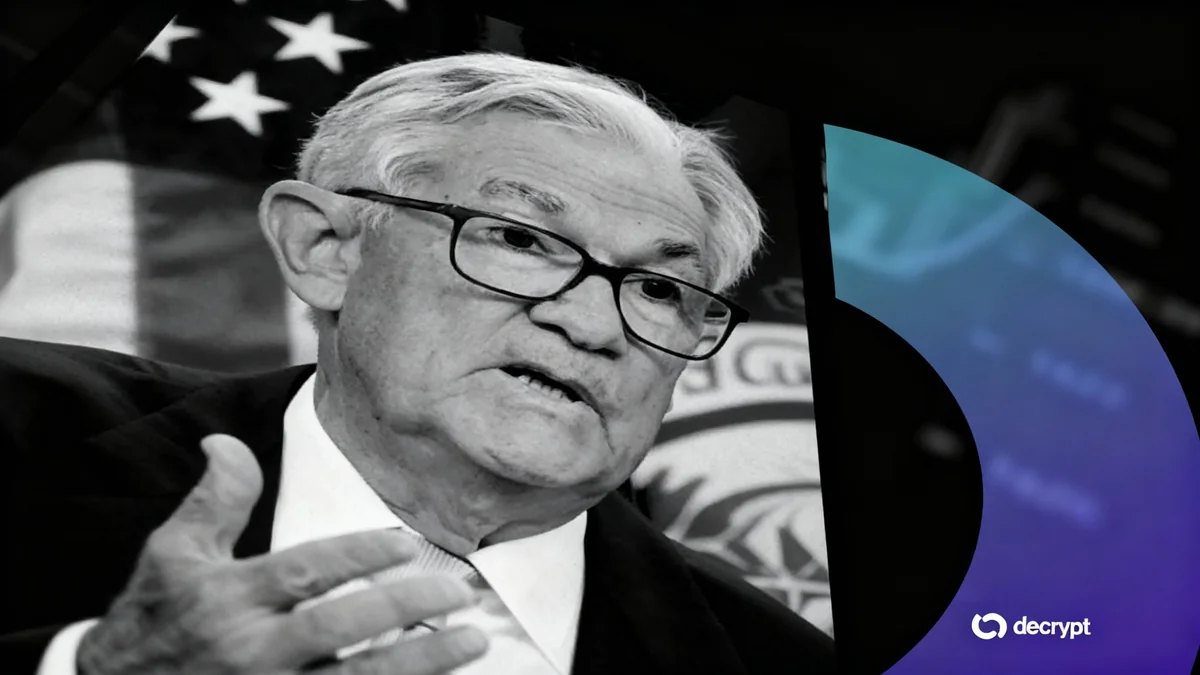The future success of exchange-traded funds (ETFs) for alternative cryptocurrencies may hinge on the participation of a single financial giant: BlackRock. New analysis of Bitcoin ETF flows reveals the asset manager's immense influence, suggesting that without its backing, upcoming altcoin funds for assets like Solana or XRP could struggle to attract significant capital.
Data shows that BlackRock's iShares Bitcoin Trust was the sole driver of positive net inflows for the entire spot Bitcoin ETF market this year. This outsized impact is now raising questions about the viability of a broader crypto ETF market without the world's largest asset manager leading the charge.
Key Takeaways
- Analysis shows that without BlackRock's fund, U.S. spot Bitcoin ETFs would have experienced a net outflow of $1.27 billion year-to-date.
- BlackRock’s iShares Bitcoin Trust (IBIT) alone attracted $28.1 billion in investments in 2025, pushing the total for all Bitcoin ETFs to $26.9 billion.
- Market experts suggest that BlackRock's absence from the upcoming wave of altcoin ETFs could significantly limit investor inflows and market impact.
- Despite this, some analysts remain optimistic, with JPMorgan predicting billions in potential investments for Solana and XRP ETFs based on market adoption rates.
The BlackRock Effect on Bitcoin ETFs
The launch of U.S. spot Bitcoin ETFs in early 2025 was a landmark event for the cryptocurrency industry, widely credited with driving Bitcoin's price to new highs. However, a closer look at the flow of funds reveals a startling concentration of investor interest.
While multiple firms launched Bitcoin ETFs, the iShares Bitcoin Trust from BlackRock has dominated the field. It has accumulated an impressive $28.1 billion in investments so far this year. This single fund's performance has not only compensated for outflows from other products but has single-handedly pushed the entire category into positive territory.
A Market of One?
Without BlackRock's contribution, the combined spot Bitcoin ETFs would have registered a cumulative net outflow of $1.27 billion year-to-date. With BlackRock, the total net inflow stands at a healthy $26.9 billion.
This data highlights the critical role that a trusted, mainstream financial institution like BlackRock plays in attracting institutional and retail capital into the digital asset space. According to Geoff Kendrick, global head of digital assets research at Standard Chartered, these ETF inflows were the primary engine behind Bitcoin's price momentum throughout the year.
An Altcoin Party Without the Main Guest?
With the market now anticipating the approval of ETFs for other major cryptocurrencies, known as altcoins, the Bitcoin ETF data serves as a crucial case study. Vetle Lunde, head of research at K33, has expressed caution about the potential for these new products if BlackRock chooses not to participate.
“No BlackRock, no party,” Lunde stated, summarizing the sentiment. “BlackRock is absent from the imminent altcoin ETF wave. Opportunity for competitors to secure strong flows, but on net, likely limiting for overall flows.”
The concern is that without the seal of approval and marketing power of the world's largest asset manager, which oversees $13.5 trillion in assets, altcoin ETFs may fail to generate the same level of excitement and investment that Bitcoin ETFs enjoyed. The brand recognition and distribution network that BlackRock brings are seen as essential for bridging the gap between traditional finance and the more volatile crypto markets.
What Are Altcoin ETFs?
Following the success of Bitcoin ETFs, financial firms are seeking regulatory approval to launch similar products for other cryptocurrencies like Solana (SOL) and XRP. These funds would allow investors to gain exposure to these digital assets through traditional brokerage accounts, without needing to directly own or store the coins themselves.
Diverging Forecasts for New Crypto Funds
Despite the cautionary tone set by the Bitcoin ETF data, not all analysts are pessimistic about the future of altcoin funds. Some believe that other asset managers now have a clear opportunity to establish a foothold in a market that BlackRock has not yet entered.
Optimistic Projections
There is a belief that the market has matured and that investor appetite for diversified crypto exposure is growing. Projections from major financial institutions suggest substantial potential inflows, even without BlackRock's direct involvement.
- Solana (SOL) ETF: Multinational investment bank JPMorgan predicts a Solana ETF could attract between $3 billion and $6 billion in new investments. Ryan Lee, chief analyst at Bitget exchange, offered an even more bullish forecast, suggesting a Solana staking ETF could draw as much as $6 billion within its first year.
- XRP ETF: JPMorgan's analysis also indicated that an XRP ETF could garner between $4 billion and $8 billion in capital.
These projections are based on the adoption rates observed for existing crypto products. Bitcoin ETFs saw an adoption rate of approximately 6% of the coin's total market capitalization within the first six months, while Ether ETFs saw a rate of around 3%.
The market is now watching closely to see which asset managers will step forward to launch these new products and whether they can replicate even a fraction of the success seen by BlackRock. The performance of the first wave of altcoin ETFs will be a critical test for the depth of institutional interest in the digital asset class beyond Bitcoin.





